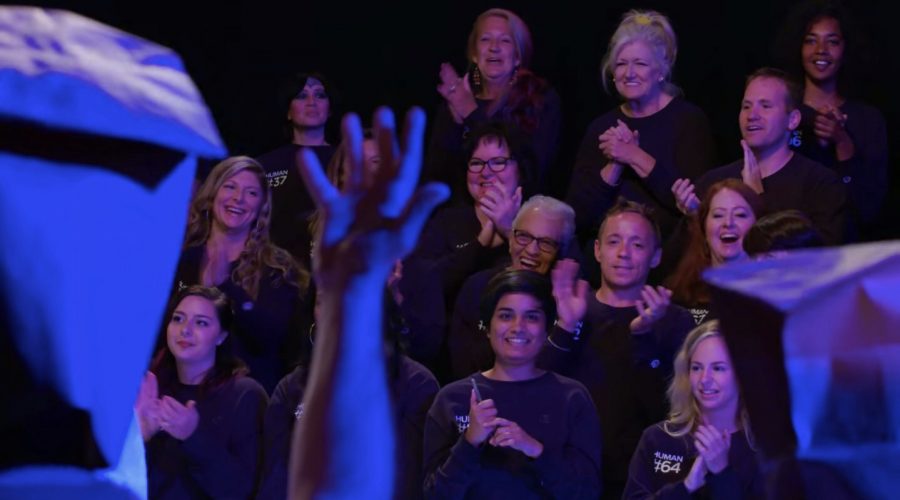Between online classes and coronavirus updates, practicing some good old fashioned escapism is a great way to maintain your sanity. So, if you want a break from your fourth re-watch of “The Office,” the new Netflix documentary series “100 Humans” is a feel-good show to bring you back to a time when 100 people could be in the same place at the same time. The show, as the name implies, takes 100 humans from diverse backgrounds and runs experiments exploring age, sex, bias and other aspects of the human condition. Unlike similar programs, such as the National Geographic show “Brain Games,” “100 Humans” follows the same group of people across every experiment. A sense of community and camaraderie is built throughout the series, a timely escape from reality of a socially distant world.
Familiarity with the participant pool gives the show an almost improvisational element. There obviously are scripted elements from the show’s hosts, Alie Ward, Zainab Johnson and Sammy Obeid, but because the participants remain the same across the experiments, the audience has the chance to become familiar with them in a congenial sort of way. The audience becomes acquainted with the participants’ personalities, becoming just as engrossed in the social aspect of the show as the scientific experiments. The participants themselves also become more familiar with one another as the show progresses, becoming more outgoing, forming friendships, poking fun at the hosts and making jokes about the experiments. The show is engaging both because of the psychology it explores and because of the community it builds, making the audience feel like a part of something during this time where so many are The hosts of the show have backgrounds in both science and entertainment, mostly in comedy. With the hosts, again, the show’s heart is not in the scripted moments but the ones that arise naturally. The hosts interact with the participants while conducting the experiments as well as with experts that the show consults to discuss the experiments’ findings. It is in these moments, when the hosts are ad-libbing with scientists or participants, that the show is at its best comedically. What the show does right is that it embraces the less polished version of humanity, allowing for situations to arise naturally and having fun where it can.
However, for the lovers of hard science or definitive answers, “100 Humans” may not be entirely satisfying. Though the show does consult scientific sources and conduct its experiments in a more or less scientific way, many of the experiments do not turn out as intended. Throughout many of the experiments people act differently than both the hosts and the scientists predict, begging the question, “are there confounding variables present?” Possibly, because the same participants are used throughout the experiments, they may adapt to knowing that they are being tested at all times. They may act differently than the average person would if given the same test because they are so used to being tested or tricked. Here, the show may sacrifice science for entertainment value. Furthermore, when experiments do not turn out as planned, the show does no further exploration and takes the results of the experiment as fact. All truth in the show is derived from the experiments, offering no outside statistics or studies to educate the audience on what the truth is. Most of the topics explored in the show are ones that have been studied extensively in the psychological field, such as inherent biases, pain tolerance and gender. The experiments are clearly posed with an answer in mind, yet when that answer is not represented in the experiment, it is brushed aside. The experiments are interesting but lack backing, which is particularly frustrating when the experiment’s conclusion goes against logic.
Overall, “100 Humans” is an entertaining program, especially in the era of social distancing. Despite some scientific shortcomings, it does give meaningful insights into the realm of human psychology with its entertaining experiments. “100 Humans” is a great way to feel closer to humanity while in social isolation.
Sophia Larson can be contacted at [email protected].



















